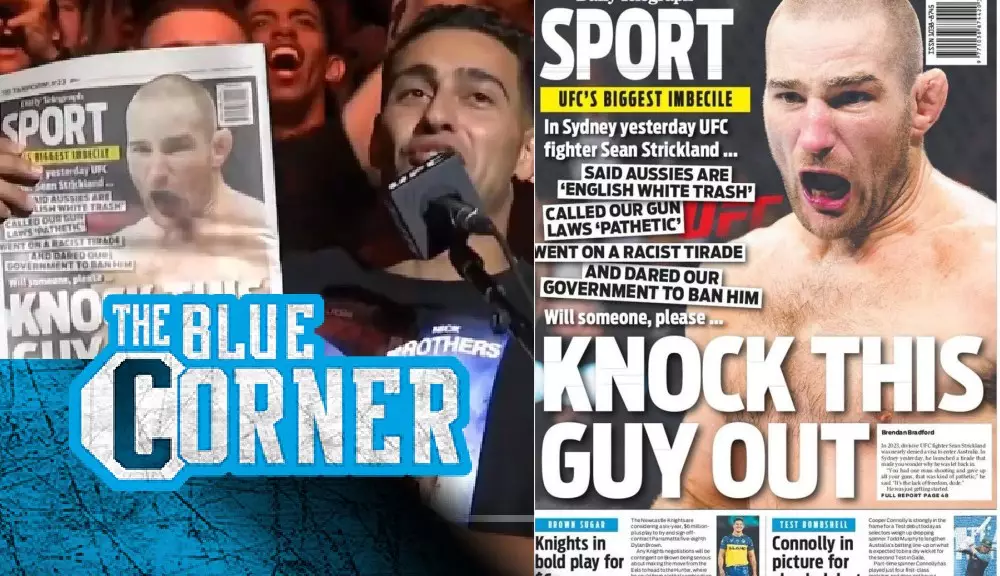In the world of mixed martial arts (MMA), few fighters attract as much attention—not just for their skills in the octagon, but for their unvarnished opinions—as Sean Strickland. With a record of 29 wins and 6 losses (16-6 in UFC), Strickland is set to challenge champion Dricus Du Plessis (22-2, 8-0 in UFC) at UFC 312. Just days before the highly anticipated title fight in Sydney, Strickland’s sharp tongue found itself in hot water, overshadowing his athletic prowess. Known for his penchant to tackle sensitive social and political issues during interviews, he is often polarizing, but this latest episode has drawn ire from the Australian media.
On the eve of the fight, Strickland’s comments made headlines for all the wrong reasons. While he has garnered a following for his straightforwardness, the way he responded to inquiries about his coverage in the Australian media turned sour. Referring to the Australian press as “communists,” Strickland seemed to disregard the cultural norms and expectations of his host country, and his remarks were met with swift backlash. The Daily Telegraph branded him the “UFC’s biggest imbecile,” demonstrating how his brash style can sometimes backfire, especially when more sensitivity is warranted.
Strickland’s comments regarding “freedom of speech” and “taxes” clearly struck a nerve. In an age where comments can quickly spiral out of control, his words felt particularly ill-timed and out of touch. It raises questions about the responsibility of public figures to engage with unfamiliar cultures and their political landscapes thoughtfully. For an athlete who appears to revel in controversy, the fact that he was “surprised” by the backlash indicates a disconnect that begs reflection.
The Broader Implications of Strickland’s Statements
The incident offers a broader commentary on how athletes articulate their beliefs outside their professional domains. While direct opinions provide entertainment and insight into their personalities, there is a fine line between candidness and insensitivity. Strickland has positioned himself as an unfiltered spokesperson for issues that resonate with his audience in the United States; however, attempting to transfer that dynamic to an international scene can lead to misunderstandings and hostility.
As UFC 312 approaches, the fighter’s ability to focus solely on the bout becomes critical. Pre-fight distractions like these can easily detract from an athlete’s performance. Strickland’s words might ignite conversations about freedom and responsibility, but they are also a reminder that sportsmanship should extend beyond the cage.
As the octagon awaits, Sean Strickland’s experience serves as a crucial example of the importance of cultural awareness in global sports environments. Engaging with diverse audiences requires a respect for their sentiments and sensibilities. While authenticity is vital, misjudged remarks can overshadow an athlete’s hard work and dedication. As Strickland steps into the ring, one can only hope that his focus shifts from the controversies of his commentary to the high-stakes battle ahead—one that could redefine his career yet again.

